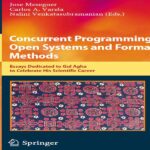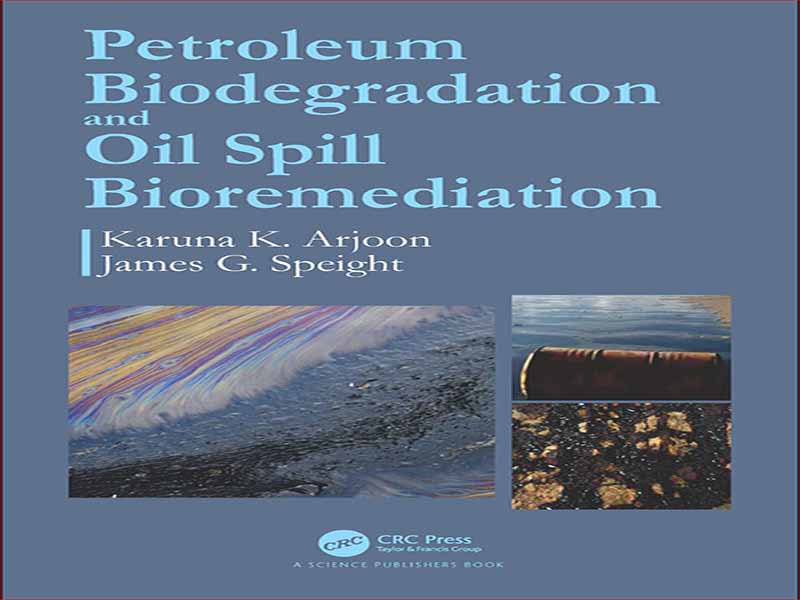- عنوان کتاب: Petroleum Biodegradation and Oil Spill Bioremediation
- نویسنده: James G. Speight, Karuna K. Arjoon
- حوزه: پاکسازی زیستی
- سال انتشار: 2022
- تعداد صفحه: 506
- زبان اصلی: انگلیسی
- نوع فایل: pdf
- حجم فایل: 7.35 مگابایت
هدف این کتاب محکوم کردن صنعت پالایش نفت خام به عنوان بازیگر بد آلودگی محیط زیست نیست. در واقع حوزه های زیادی از صنایع شیمیایی وجود دارند که مسئول انتشار آلاینده ها در محیط هستند. صنعت پالایش از جمله صنایعی است که شاهد نشت ناخواسته نفت خام تصفیه نشده و فرآورده های نفت خام بوده است. سوال ادامه دار، از آغاز جنبش زیست محیطی در دهه 1960، به وضعیت نسبی محیط زیست مربوط می شود.
با این حال، هدف این کتاب شناسایی روشهای پاکسازی مؤثر برای نشت نفت خام و فرآوردههای نفت خام (و همچنین نشت سایر مواد شیمیایی) است که هم از نظر اقتصادی و هم از نظر زیستمحیطی مناسب هستند، برای ادامه حیات ضروری است. از انسانیت تا کنون، زیست پالایی به عنوان یک روش ارزشمند پاکسازی بسیاری از مخاطرات زیست محیطی در سه تا چهار دهه گذشته شتاب بیشتری به دست آورده است.
در این کتاب، به غیر از اصطلاحات نفت خام و فرآورده نفت خام، اصطلاح نفت اغلب جایگزین می شود تا طیف وسیعی از مواد شیمیایی مبتنی بر هیدروکربن را توصیف کند که شامل موادی است که معمولاً به عنوان نفت در نظر گرفته می شوند، مانند نفت خام و فرآورده های نفتی تصفیه شده. . هر نوع روغن دارای خواص فیزیکی و شیمیایی مشخصی است. این ویژگیها بر نحوه انتشار و تجزیه نفت، خطری که ممکن است برای آبزیان و جان انسانها داشته باشد، و احتمال اینکه تهدیدی برای منابع طبیعی و مصنوعی باشد، تأثیر میگذارد.
زیست پالایی استفاده از موجودات طبیعی برای حذف بسیاری از اجزای نفت خام و فرآورده های نفت خام از محیط است. نگرانی این است که آیا فناوریهای زیست پالایی میتوانند این فرآیند طبیعی را آنقدر تسریع کنند که عملی تلقی شود یا نه، و اگر چنین است، آیا ممکن است جایگاهی را به عنوان جایگزین یا مکمل دیگر فناوریهای واکنش به نشت نفت خام بیابند.
نفت خام (که نفت نیز نامیده می شود) مخلوط پیچیده ای از هزاران ترکیب شیمیایی مختلف است. علاوه بر این، ترکیب هر انباشت نفت منحصر به فرد است و در مناطق مختلف تولید و حتی در مناطق مختلف غیر مرتبط از یک سازند متفاوت است. ترکیب نفت خام نیز با میزان پالایش متفاوت است. به طور قابل توجهی، بسیاری از اجزای تشکیل دهنده نفت خام به طور قابل توجهی از نظر فرار، حلالیت و حساسیت به تجزیه زیستی متفاوت هستند – برخی از ترکیبات به تجزیه بیولوژیکی میکروبی حساس هستند در حالی که برخی دیگر غیرقابل تجزیه زیستی هستند.
It is not the purpose of this book to condemn the crude oil refining industry as the bad actor in terms of environmental pollution. In fact, there are many areas of the chemical industry that are responsible for the release of pollutants into the environment. The refining industry is one such industry that has seen inadvertent spillage of unrefined crude oil and crude oil products. The continuing question, since the beginning of the environmental movement in the 1960s, relates to the relative condition of the environment.
However, it is the purpose of the book to identify effective clean-up methods for the spills of crude oil and crude oil products (as well as the spills of other chemicals) that is both economically and ecologically suitable is of paramount urgency for continued existence of humanity. Thus far, bioremediation has been gaining momentum as a valuable clean-up method of many environmental hazards over the past three-to-four decades.
In this book, other than the terms crude oil and crude oil product, the term oil is often substituted to describe a broad range of hydrocarbon-based chemicals which includes substances that are commonly thought of as oils, such as crude oil and refined petroleum products. Each type of oil has distinct physical and chemical properties. These properties affect the way oil will spread and break down, the hazard it may pose to aquatic and human life, and the likelihood that it will pose a threat to natural and man-made resources.
Bioremediation is the use of natural organisms to eliminate many components of crude oil and crude oil products from the environment. The concern is whether or not bioremediation technologies can accelerate this natural process enough to be considered practical, and, if so, whether they might find a niche as replacements for, or adjuncts to, other crude oil-spill response technologies.
Crude oil (also called petroleum) is a complex mixture of thousands of different chemical compounds. In addition, the composition of each accumulation of oil is unique, varying in different producing regions and even in different unconnected zones of the same formation. The composition of crude oil also varies with the amount of refining. Significantly, the many constituents of crude oil differ markedly in volatility, solubility, and susceptibility to biodegradation—some constituents are susceptible to microbial biodegraded while others non-biodegradable.
این کتاب را میتوانید بصورت رایگان از لینک زیر دانلود نمایید.
Download: Petroleum Biodegradation and Oil Spill Bioremediation





































نظرات کاربران